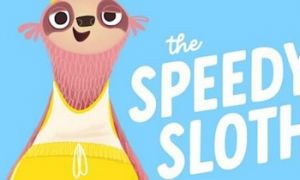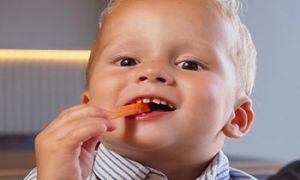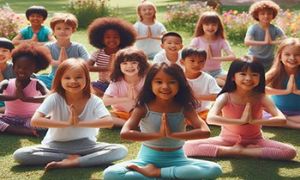The following lists the sub outcomes, examples of evidence when children can achieve each sub outcome and how educators can promote and help children to achieve EYLF Learning Outcome 3: Children Have A Strong Sense Of Wellbeing.
A strong sense of wellbeing provides children with confidence and optimism which maximise their learning potential. It encourages the development of children’s innate exploratory drive, a sense of agency and a desire to interact with others. Wellbeing includes good physical health, feelings of happiness, satisfaction and successful social functioning. It influences the way children interact in their environments.
Learning Outcome 3: Children Have A Strong Sense Of Wellbeing
3.1 Children become strong in their social and emotional wellbeing.
This is evident when children:
- demonstrate trust and confidence.
- remain accessible to others at times of distress, confusion and frustration.
- share humour, happiness and satisfaction.
- seek out and accept new challenges, make new discoveries, and celebrate their own efforts and achievements and those of others.
- increasingly co-operate and work collaboratively with others.
- enjoy moments of solitude.
- recognize their individual achievement.
- make choices, accept challenges, take considered risks, manage change and cope with frustrations and the unexpected.
- show an increasing capacity to understand, self-regulate and manage their emotions in ways that reflect the feelings and needs of others.
- experience and share personal successes in learning and initiate opportunities for new learning in their home languages or Standard Australian English.
- acknowledge and accept affirmation.
- assert their capabilities and independence while demonstrating increasing awareness of the needs and rights of others.
- recognize the contributions they make to shared projects and experiences.
Educators promote this learning by:
- show genuine affection, understanding and respect for all children.
- collaborate with children to document their achievements and share their successes with their families.
- ensure that all children experience pride in their attempts and achievements.
- promote children’s sense of belonging, connectedness and wellbeing.
- challenge and support children to engage in and persevere at tasks and play.
- build upon and extend children’s ideas.
- maintain high expectations of each child’s capabilities.
- value children’s personal decision-making.
- welcome children and families sharing aspects of their culture and spiritual lives.
- talk with children about their emotions and responses to events with a view to supporting their understandings of emotional regulation and self-control.
- acknowledge and affirm children’s effort and growth.
- mediate and assist children to negotiate their rights in relation to the rights of others.
3.2 Children take increasing responsibility for their own health and physical wellbeing.
This is evident when children:
- recognise and communicate their bodily needs (for example, thirst, hunger, rest, comfort, physical activity).
- are happy, healthy, safe and connected to others.
- engage in increasingly complex sensory-motor skills and movement patterns.
- combine gross and fine motor movement and balance to achieve increasingly complex patterns of activity including dance, creative movement and drama.
- use their sensory capabilities and dispositions with increasing integration, skill and purpose to explore and respond to their world.
- demonstrate spatial awareness and orient themselves, moving around and through their environments confidently and safely.
- manipulate equipment and management tools with increasing competence and skill respond through movement to traditional and contemporary music, dance and storytelling.
- show an increasing awareness of healthy lifestyles and good nutrition.
- show increasing independence and competence in personal hygiene, care and safety for themselves and others.
- show enthusiasm for participating in physical play and negotiate play spaces to ensure the safety and wellbeing of themselves and others.
Educators promote this learning by:
- plan for and participate in energetic physical activity with children, including dance, drama, movement and games.
- draw on family and community experiences and expertise to include familiar games and physical activities in play.
- provide a wide range of tools and materials to resource children’s fine and gross motor skills.
- actively support children to learn hygiene practices.
- promote continuity of children’s personal health and hygiene by sharing ownership of routines and schedules with children, families and the community.
- discuss health and safety issues with children and involve them in developing guidelines to keep the environment safe for all.
- engage children in experiences, conversations and routines that promote healthy lifestyles and good nutrition.
- consider the pace of the day within the context of the community.
- model and reinforce health, nutrition and personal hygiene practices with children.
- provide a range of active and restful experiences throughout the day and support children to make appropriate decisions regarding participation.
References:
Understanding EYLF Outcomes, Aussie Childcare Network
EYLF Learning Outcomes, Aussie Childcare Network
How Children Can Achieve Outcomes, Aussie Childcare Network
How Educators Can Promote Outcomes, Aussie Childcare Network


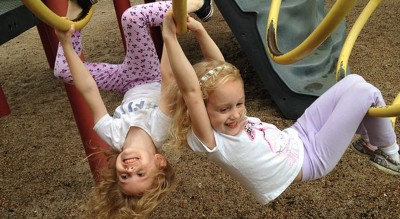
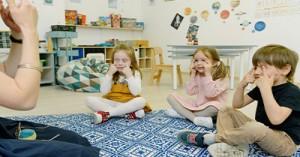

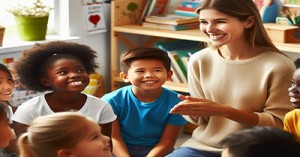
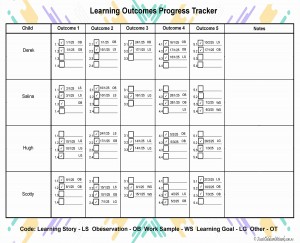
 Here is the list of the EYLF Learning Outcomes that you can use as a guide or reference for your documentation and planning. The EYLF
Here is the list of the EYLF Learning Outcomes that you can use as a guide or reference for your documentation and planning. The EYLF The EYLF is a guide which consists of Principles, Practices and 5 main Learning Outcomes along with each of their sub outcomes, based on identity,
The EYLF is a guide which consists of Principles, Practices and 5 main Learning Outcomes along with each of their sub outcomes, based on identity, This is a guide on How to Write a Learning Story. It provides information on What Is A Learning Story, Writing A Learning Story, Sample
This is a guide on How to Write a Learning Story. It provides information on What Is A Learning Story, Writing A Learning Story, Sample One of the most important types of documentation methods that educators needs to be familiar with are “observations”. Observations are crucial for all early childhood
One of the most important types of documentation methods that educators needs to be familiar with are “observations”. Observations are crucial for all early childhood To support children achieve learning outcomes from the EYLF Framework, the following list gives educators examples of how to promote children's learning in each individual
To support children achieve learning outcomes from the EYLF Framework, the following list gives educators examples of how to promote children's learning in each individual Reflective practice is learning from everyday situations and issues and concerns that arise which form part of our daily routine while working in an early
Reflective practice is learning from everyday situations and issues and concerns that arise which form part of our daily routine while working in an early Within Australia, Programming and Planning is reflected and supported by the Early Years Learning Framework. Educators within early childhood settings, use the EYLF to guide
Within Australia, Programming and Planning is reflected and supported by the Early Years Learning Framework. Educators within early childhood settings, use the EYLF to guide When observing children, it's important that we use a range of different observation methods from running records, learning stories to photographs and work samples. Using
When observing children, it's important that we use a range of different observation methods from running records, learning stories to photographs and work samples. Using This is a guide for educators on what to observe under each sub learning outcome from the EYLF Framework, when a child is engaged in
This is a guide for educators on what to observe under each sub learning outcome from the EYLF Framework, when a child is engaged in The Early Years Learning Framework describes the curriculum as “all the interactions, experiences, activities, routines and events, planned and unplanned, that occur in an environment
The Early Years Learning Framework describes the curriculum as “all the interactions, experiences, activities, routines and events, planned and unplanned, that occur in an environment